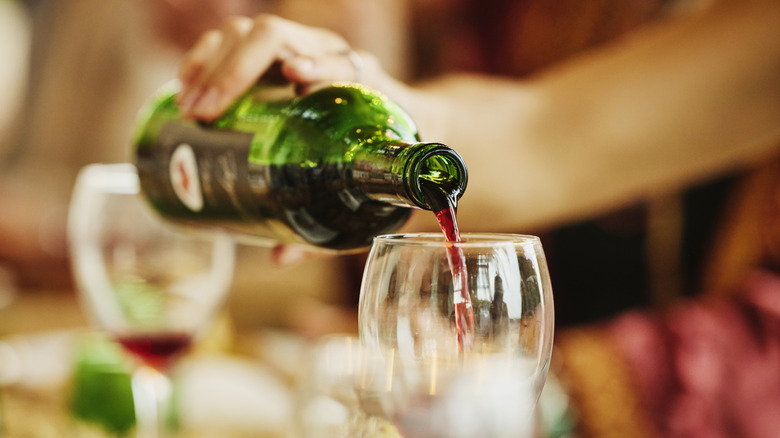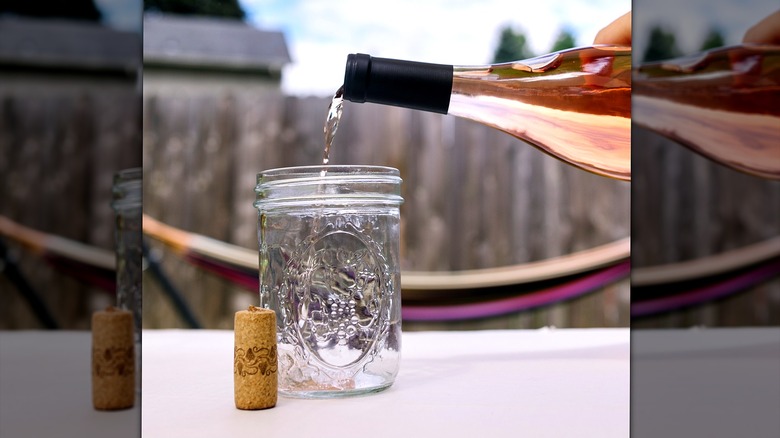No Cork, No Problem – The Perfect Fix For Fresh Wine Is Probably Already In Your Kitchen
Single winos like myself often go to great lengths to preserve the quality of our wine once a bottle has been opened. While the easiest and cheapest method has been to simply reinsert the cork, store your wine bottle in the fridge, and hope for the best, there are other techniques out there that better preserve the wine's flavor and prevent spoilage. One such method is transferring the wine to a Mason jar. Though it may sound unconventional and a tad too similar to 2008-era barn-inspired weddings, using a Mason jar can be a smarter and more effective way to store leftover wine.
The main problem with leftover wine is that it begins to oxidize the moment it comes into contact with air. Oxygen triggers chemical reactions in the wine that can mess with its aroma, flavor, and color. While a little oxygen can help open up the wine's bouquet and make it taste even better shortly after uncorking, too much oxygen quickly leads to deterioration. Within a day or two, your wine can become flat, sour, or vinegary, especially those low-tannin reds and lower-acid whites.
The key to preserving wine is to minimize its contact with air, which sounds easy enough. Unfortunately, putting the cork back in the original bottle doesn't seal the wine as tightly as you might think. There's still a significant amount of air trapped inside the bottle, and most corks don't provide an airtight seal once they've been removed and put back in.
The miracle of the Mason jar to preserve wine
Originally, Mason jars were designed for food preservation, and are airtight when sealed properly. This feature alone makes them superior to a used cork when it comes to limiting oxygen exposure. Instead of keeping your leftovers in the standard 750 milliliter bottle (which leaves the rest filled with air), pour the remaining wine into a smaller jar. Ta-da! You just minimized the air-to-liquid ratio.
The process couldn't be simpler. Choose a jar size that matches the amount of leftover wine as closely as possible. Seal the jar tightly with a clean lid, and store upright in the refrigerator where it will stay fresh for up to five days. Like wine bottles, Mason jars are made of glass, which doesn't react with the wine or impart any flavors. Plastic containers or metal flasks, on the other hand, can interact with wine's natural acids and change its taste. And, since the jars are transparent, it's easy to monitor the condition of your wine and spot any changes in color or clarity, which can indicate spoilage.
Beyond preservation, Mason jars are simply convenient. They're easy to clean, dishwasher-safe, and readily available. Their wide mouths make pouring and cleaning much simpler. If you don't always finish a bottle in one sitting (which, good for you!), using a Mason jar reduces waste and keeps your wine journey going a little longer.

